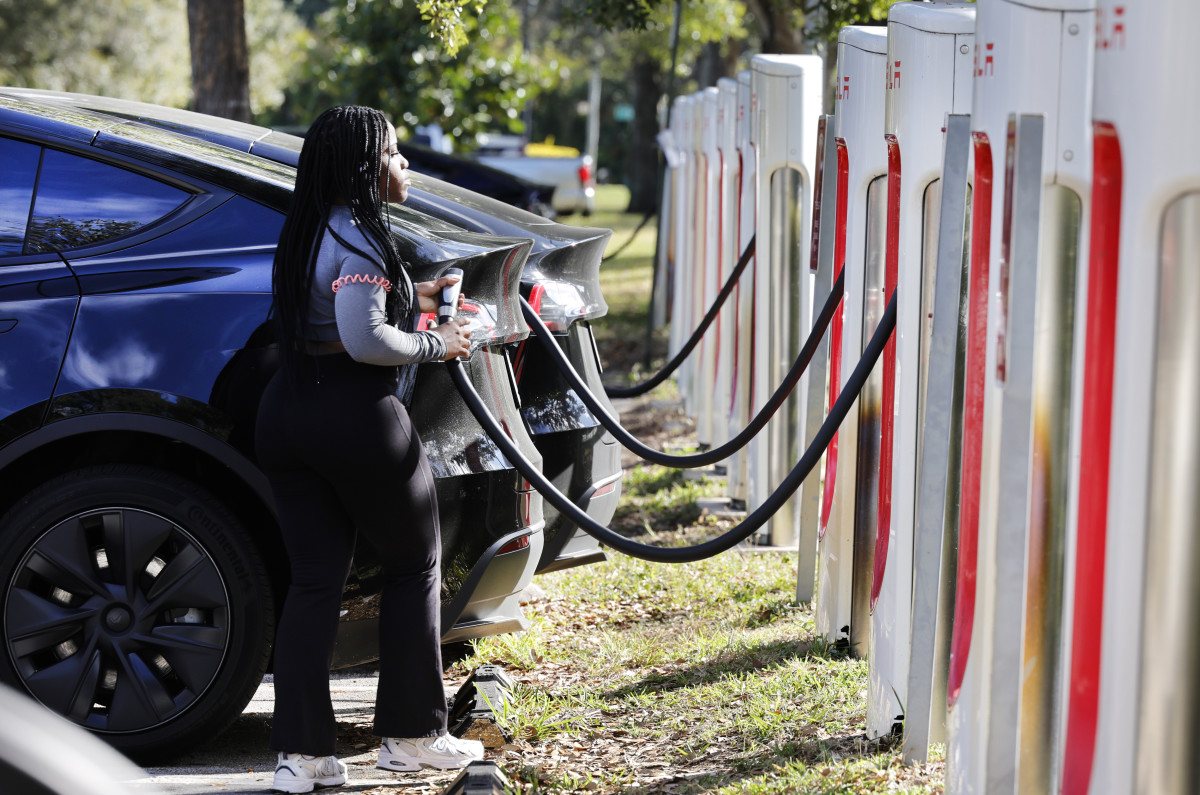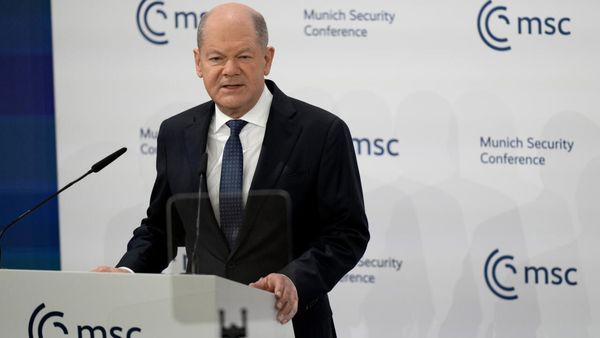
For years, converting from a gas-powered car to adopting an EV has been a tempting proposition for many drivers out on America's roads.
Qualified buyers meeting certain thresholds can get up to $7,500 off certain cars at purchase. EV drivers save money by charging instead of filling up with gas, and if they happen to buy or lease from certain brands like Hyundai, Volkswagen, or BMW, they might be able to get a certain amount of free charging credits.
But at the same time as automakers and devoted fans and owners have championed the benefits of going electric, some lawmakers in DC have shown their distaste for EVs.
💰💸 Presidents Day Sale: Get Free access to TheStreet Pro for 31 days – Claim your offer today! 💰💸
President Donald J. Trump, for example, has explicitly mentioned rolling back what he called the "Biden EV Mandate."
"With my actions today, we will end the Green New Deal, and we will revoke the electric vehicle mandate, saving our auto industry and keeping my sacred pledge to our great American autoworkers," Trump said in his inauguration speech.
"In other words, you'll be able to buy the car of your choice."

Lawmakers serve a legislative double-whammy targeting EVs
On February 12, Republican members of the U.S. Senate served a double-shot of new legislation aimed straight at potential and current EV owners.
Senator John Barrasso (R-WY) introduced a proposal called the Eliminating Lavish Incentives to Electric (ELITE) Vehicles Act. This legislation focuses on eliminating the current $7,500 federal tax credit on qualifying new EVs and the $4,000 tax credit on used EVs. It also eliminates any federal investment credits for EV charging stations and removes any incentives for those who lease EVs—what is commonly referred as the "leasing loophole."
Barrasso is backed by 14 other GOP senators, including Senate Majority Leader John Thune (R-SD). In a statement, the Senator from Wyoming stated that his bill is meant to protect the "hard-earned money of taxpaying Americans" from subsidizing "the luxuries of the nation’s elite" and allowing China to "infiltrate our markets."
"Repealing these reckless tax credits from the Biden administration once and for all will stop Washington from giving handouts to our adversaries and high-income individuals," Barasso said. "Wyoming families should not foot the bill for expensive electric cars they don’t want and can’t afford."
Related: Automakers beg D.C. politicos to go easy with tough EV policy
Barasso's bill targeting the Federal EV tax credits is not the only bill proposed on February 12 that targeted EV drivers.
The same day, Senator Deb Fischer (R-NE) introduced the Fair Sharing of Highways and Roads for Electric Vehicles (Fair SHARE) Act, a tax on EVs that aims to recoup lost federal gas tax revenue.
The bill proposes a one-time $1,000 fee at the time of purchase of any new EV.
In a statement, the Nebraskan Senator explained that the fee is calculated as such to 10 years' worth of federal gas tax revenue per car. Federal gas taxes are exclusively used to fill the Highway Trust Fund (HTF), which is exclusively used to maintain and repair infrastructure like roads and bridges.
However, as cars have become more fuel efficient and some buyers adopt heavier EVs, gas tax funding has become a concern.
“EVs can weigh up to three times as much as gas-powered cars, creating more wear and tear on our roads and bridges," Senator Fischer said in a statement. "It’s only fair that they pay into the Highway Trust Fund just like other cars do."
Parts of Senator Fischer's bill are a reality at the state level in some states
Some elements of Fischer's bill are already being implemented on a state level. According to the National Conference of State Legislatures (NCSL), 39 states have a special registration fee for EVs to recuperate lost gas tax funding.
For example, EV drivers in New Jersey, one of the latest states to implement the fee, will have to pay a $250 annual electric vehicle fee in addition to their registration fee, which will increase by $10 per year for four years.
Starting in 2028, the fee will exceed $290. The proceeds of New Jersey's yearly EV registration tax will fund the state's trust fund for transportation projects and NJ Transit.
More Business of EVs:
- Tesla threatened with 100% tariffs in Canada over Musk's Trump support
- Three big takeaways from Tesla's latest earnings
- Popular Kia EV faces massive recall over dangerous safety issue
Both EV bills have some strings attached
Both bills introduced by the Republican senators align with President Trump's executive order titled "Unleashing American Energy," which established the administration's "drill, baby, drill" energy goals on paper.
Under section (e) of the text of the order, which calls for the elimination of the "EV mandate," it also calls for "ensuring a level regulatory playing field for consumer choice in vehicles," as well as "the elimination of unfair subsidies and other ill-conceived government-imposed market distortions that favor EVs over other technologies and effectively mandate their purchase."
Like the President, both senators who announced their respective EV penalty bills received significant contributions from the oil and gas industry.
According to data from OpenSecrets, Senator Barrasso, a ranking member of the Energy and Natural Resources Committee, received $781,381 in contributions from the oil and gas industry between 2019 and 2024. Senator Fischer, who proposed the tax on EVs, received $356,393 from the same industry over the same period.
In addition, Barasso's proposal is supported by the American Fuel & Petrochemical Manufacturers (AFPM), who said in a statement that EVs must "compete on a level playing field."
"The EV tax credit was always supposed to sunset, so Senator Barrasso is absolutely right to say, ‘enough is enough’ for taxpayers," Chet Thompson, President and CEO, American Fuel & Petrochemical Manufacturers (AFPM), said. "After more than a decade of subsidies worth billions of dollars, it’s time for EVs to compete on a level playing field."
Related: Veteran fund manager issues dire S&P 500 warning for 2025







